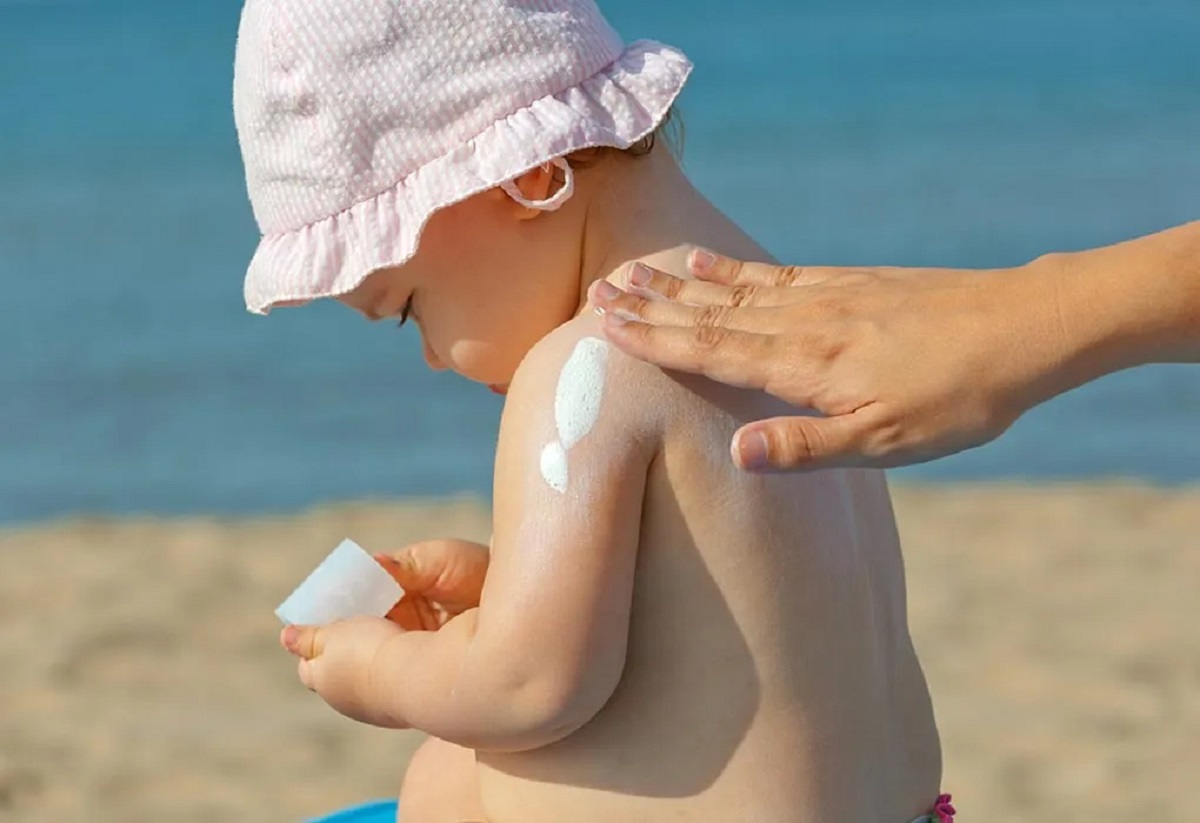Sunscreen For Children: What Sunscreen Is Suitable For Children?

Sunscreen For Children: Some estimates suggest that 25% of permanent sun damage occurs during childhood and adolescence.
Finding the best sunscreen for kids is one of the most important tasks and concerns for parents when it comes to stocking up on summer essentials.
Early protection of a child’s skin against sun damage can benefit him throughout his life. According to the “Healthy Children” website, some estimates show that 25% of permanent sun damage occurs during childhood and adolescence.
Sunscreen For Children, Over time, sun damage can lead to premature aging and an increased risk of skin cancer. So, while we know it’s great for kids to get outside and be active, it’s important to find the right sunscreen for them so they can safely enjoy being active in the warm weather.
Although in order to buy the right sunscreen for your beloved child, it is enough to ask the pharmacy to introduce the children’s sunscreen to you, it is not bad to know why it is better for children to use their own sunscreen.
Sunscreens are divided into two types, chemical or organic, and mineral or physical, based on UV protection filters.
Chemical sunscreen filters are made in laboratories and protect the skin by absorbing UV rays and converting them into heat.
Sunscreen For Children

Sunscreen For Children, But mineral or physical sunscreens are made using two mineral compounds zinc oxide (zinc oxide) and titanium dioxide (titanium dioxide) and protect the skin by reflecting and scattering ultraviolet rays.
Although the US Food and Drug Administration (FDA) has approved chemical UV filters as safe, there are sometimes concerns about their potential health risks. For example, a limited study in 2019 found that these chemicals can enter the bloodstream through the skin, but it’s not clear whether they have adverse effects.
According to Consumer Reports, concerns have been raised about oxybenzone (a chemical UV filter) that can disrupt the function of certain hormones in rats fed it, but not in humans given topically. They use sunscreen, the same effect has not been observed.
Sunscreen For Children, For this reason, the American Academy of Pediatrics recommends that sunscreens containing oxybenzone should not be used in children, given that their hormone-producing endocrine system is not yet complete.
In order for the chemical sunscreen to protect the skin against both types of UV rays, i.e. UVA and UVB, several chemical filters must be used in its composition. As a result, there may be an increase in the incidence of allergies for children and those with sensitive skin.
In contrast, any of the mineral-based sunscreens’ protective filters handle a wide range of UV rays well, and thus require fewer ingredients to make. This feature, along with other features of these products, which are less absorbed by the skin than chemical filters, reduces the possibility of causing sensitivity.
Sunscreen For Children, To the above, we should add the opinion of Terence Chang, a biochemist and cosmetic scientist in Norfolk, England, who believes that mineral sunscreens are more stable on the skin compared to their chemical counterparts and can maintain their protective quality for a longer time.
Considering all these points, most of the children’s sunscreens available in the market are mineral sunscreens in order to provide the least sensitivity for them in addition to full and longer protection.
Also Read:
The Best Summer Comestible To Stay Cool On Hot Days
What Changes Does The Skin Care And Beauty Program Need In The Summer?
Summer 2024 Makeup: From “Bronzed Glow” To “Pearl Skin”, The Trends To Try




